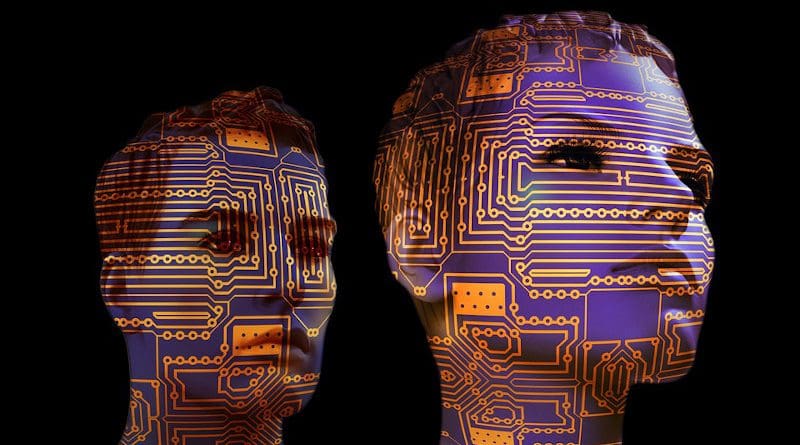AI, Budget Deficits And The Aging Crisis – OpEd
By Dean Baker
I have long been amazed at how major debates over various economic policy issues can have completely contradictory assumptions, and no one seems to notice. This was driven home to me by a New York Times column by Peter Coy (a very good columnist) where he addressed the issue of whether AI would take all our jobs.
This risk has been arousing some concern in social media and various publications. This is striking because the prospect of no jobs raises a set of concerns that is 100 percent in the opposite direction of the frequently expressed problem of budget deficits and debt, as well as the problem of an aging population.
To put the issue as simply as possible, the story of AI taking all the jobs is a story where we can produce too much. The idea is that people don’t have jobs because there is no demand for their labor, AI is doing all the work.
This is the exact opposite of the budget deficit problem or the aging problem. Both of these are stories of scarcity. The deficit story is that government spending, given current tax structures, is pushing the economy beyond its capacity to produce goods and services.
If we are not hitting the economy’s capacity then we can just print the money, no matter how large the deficit is. We only get inflation if we push the economy beyond its ability to produce goods and services.
It’s a similar picture with the aging population story. The argument here is that we have too few workers to support a growing population of retirees. We would need ever higher taxes on the working population if we are to provide retirees with food, housing, healthcare and other necessities.
It is possible to construct stories where AI will lead to massive overproduction and an enormous reduction in the demand for labor. It is also possible to construct stories where large budget deficits push the economy up against constraints, leading to inflation, or where the aging population requires much larger taxes on workers.
However, it is not possible to put both stories together. If we really have to worry about AI radically reducing the demand for labor, then we don’t have to worry about the size of our budget deficit or debt. We also don’t have to worry about the rising ratio of retirees to workers. AI will take care of that, providing the goods and services our elderly need.
As far as my own view, I lean towards the AI taking the jobs story, although perhaps my scenario would not be as dramatic as some have been suggesting. I’m sure AI will have a big productivity impact in many sectors, but it is not going to be instantaneous.
We will gradually see reduced demand for lawyers, accountants, engineers, and in hundreds of other occupations. This will translate into lower prices for many items, which means higher real wages for workers in sectors seeing fewer layoffs. That should mean increased demand, as these workers spend their pay, which will create new jobs.
Of course, there is no guarantee that the benefits of increased productivity will accrue to workers, although that has generally been the case in the past. (The wage stagnation since 1980 has largely been a story where the wages of workers at the middle and bottom of the distribution went to workers at the top end like CEOs and Wall Street types.) We need policies to ensure that the productivity gains from AI are widely shared.
Just to be clear on this point, the issue is not one of government “redistribution,” as it is often framed. Government rules, not the market, will determine how the bigger pie associated with AI gets cut. There is no natural market distribution.
Just to take the most obvious and important example, ownership of AI is bestowed by government-granted patent and copyright monopolies. These are government policies, not the market.
Without these monopolies, it is unlikely that any company and/or individuals would be in a position to hugely profit from AI. Imagine that all AI software was fully open and could be used by anyone at zero cost. Also, the software embedded in the servers that power AI was fully open, so that anyone with a factory could replicate the servers. In this case, AI would likely be very cheap for anyone who saw a use, which means its benefits should be quickly passed on in the form of lower prices.
The government can take steps to ensure that gains are broadly shared. A higher minimum wage to go along with higher productivity would be an obvious measure. (We used to raise the minimum wage in stepwith productivity, it would be over $24 an hour today if we had continued this practice.)
We can also reduce the standard workweek. Instead of having overtime pay kick in at 40 hours a week, we can set the cutoff at 36 hours or 32 hours, or even less, depending on how much AI is increasing productivity.
And we could use our AI productivity dividend to spend more in areas like health care and education, as well as cleaning up the environment. All of which will be possible without higher taxes due to the AI increasing our output.
Again, I don’t see us stumbling into a world of unbelievable plenty tomorrow, but I do think AI offers enormous potential for productivity gains that can be broadly shared with the right policies. There really is not a basis for fears that we won’t have any jobs, but the fact that the issue is even raised means that we likely don’t have to worry about budget deficits or not having enough workers due to an aging population.
This first appeared on Dean Baker’s Beat the Press blog.

